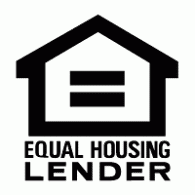Paying for your dream home with a mortgage frees up your money for other things and builds your credit score and equity. You don’t have to wait years while repaying your current mortgage to convert your home equity into cash. You can pay off your existing mortgage through a cash out refinance and still have more money in your pocket.
What is a Cash Out Refinance?
A cash out refinance lets you take a larger loan and use it to clear your existing mortgage. After settling your old mortgage, the balance is refunded to you in cash.
You can use the cash for virtually any purpose, which includes consolidating high-interest debts, home remodeling, and even starting new construction.
Mortgage refinancing poses a lot of benefits to property owners. It enables you to reduce your monthly mortgage repayments while negotiating for a lower interest rate.
Besides, you can access the cash using your home equity, renegotiate your periodic loan terms, and include or remove borrowers from your loan obligation.
The amount of cash out refinancing you can obtain from your lender depends on your credit profile and the property’s loan-to-value ratio.
In most cases, you may incur more points, or a higher interest rate on a cash out refinance mortgage than on a rate-and-term refinance. Thus, if you want to benefit more from your cash out refinancing, find a way to lower the interest rate on the primary mortgage and maximize the funds you get.
How a Cash Out Refinance Works
With a cash out refinance mortgage, your home equity and some cash can serve as collateral for the new loan. The process involved is quite similar to rate-and-term mortgage refinancing. Although with rate-and-term refinancing, you only get the same amount to help you settle your existing loan at a lower interest rate.
You must find a lender willing to walk the journey with you when looking for a cash out refinance. The lender will then evaluate your credit profile, the existing mortgage’s terms, and the amount needed to settle the loan.
Depending on the underwriting analysis, the lender may decide to make an offer or decline your request. If you qualify for the new loan, you are awarded an amount that pays off the old mortgage, and the balance is issued to you in cash.
After a refinance, most lenders require you to keep about 10% to 20% equity. It depends on the lender and if you are paying for your new loan’s private mortgage insurance (PMI).
PMI is the additional cost you may incur if you fail to place at least 20% down when buying a house or the 20% equity required after a cash out refinance. The money covers the lender if you fail to pay your mortgage.
Like other loans, you are expected to pay closing costs after completing your cash out refinance. The charges range from 2% to 6% and cater to the appraisal, lender fees, and other expenses incurred. Thus, you must inquire about all the costs you will incur before borrowing.
How Much You Can Get from a Cash Out Refinance
To determine the amount you can receive from a cash out refinance, you should know these three things:
- The worth of your home or home value.
- Your current mortgage balances.
- The percentage of retained equity required by the lender after refinancing.
Most lenders use an automated valuation model or physical home appraisal to determine the worth of your home. Depending on your credit score and the lender’s rules, you may be allowed to borrow up to 80% or 90% of your home’s value.
Now, the remaining 10% or 20% is your retained equity. The only exception is for the US Department of Veterans Affairs, which allows you to take all 100 percent equity.
For instance, if your home value is $600,000, the retained equity (20% of home value) will be $120,000. The cash out refinance loan amount you will be awarded will be $480,000. Let’s say your current mortgage balance is $200,000. The cash you will receive after repaying the balance will be $280,000.
Cash Out Refinancing Pros and Cons
Before you choose the cash out to refinance route, consider its pros and cons.
Pros
Lower Interest Rates – If your mortgage rates were higher when you initially bought the property, you might have lower interest rates in your cash out refinancing.
Access to More Funds – Cash out refinance can help you settle significant expenses, such as college tuition, home renovation, or any other financial goal.
Higher Credit Score – When you pay your credit cards through cash out refinance, you may improve your credit score by lowering your credit utilization ratio.
Debt Consolidation – Cash out Refinancing enables you to pay off all high-interest credit cards, saving you a lot of money.
Benefit from Tax Deductions – You may benefit from interest deduction during tax time. That’s if you will use these funds for a home improvement project that complies with the IRS eligibility requirements.
Lower Borrowing Cost – Cash out Refinancing options are usually cost-effective as their mortgage refinance rates are lower than personal loan rates.
Cons
Foreclosure Risk – Since you use your home as collateral, you may lose it if you fail to make the necessary payments. Things might be worse if you use the secured loan to pay unsecured debts, like college tuition and credit card debt.
Time-consuming – The entire process of getting a new loan takes time. If you need quick funds, cash refinancing may not work for you.
New Mortgage Terms – You will have to deal with different rules from your existing loan, such as interest rates and other fees.
Prolonged Debt Repayment – You may pay out cash to refinance your mortgage for decades. Most lenders spread the cash over 30 years. This could be costly and tiring, especially if you use the money to settle a higher credit card debt.
Private Mortgage Insurance (PMI) – Paying for private mortgage insurance (PMI) adds to your overall borrowing costs. Some lenders require you to keep between 10% to 20% equity, which covers them if you don’t pay the mortgage.
Closing Costs – Like any other refinance option, your cash out refinance lender will expect you to pay closing costs. This reduces the cash you get at closing.
If you are looking for a way to repay your current mortgage and still have some funds for other things, a cash out refinance would be the way to go. Look for a reputable lender and start your mortgage process. Remember to inquire about their interest rates and other fees involved before borrowing.






